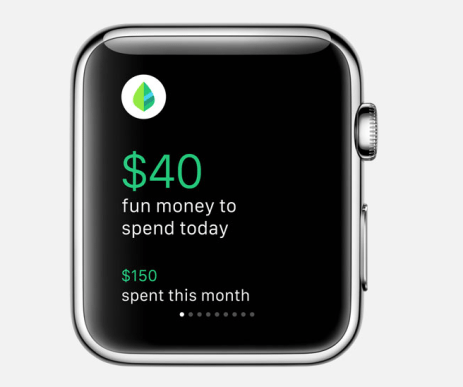
At last week’s Payments International conference, Dave Birch and I engaged in a fun Oxford style debate entitled: This House Believes That Banks Are Failing To Grasp The Mobile Opportunity. Unfortunately Dave got to propose the motion – we both said afterwards we could have argued either way – and, purely because a lot of bankers were in the room, he lost the motion. I opposed it and, purely for the record, thought I’d share my notes, for what they are.

I cannot believe that this audience believes that banks are failing to grasp the mobile opportunity as, when I look at the innovations around me today, I would say they are leading them. Banks are continually sending me notices of their ability to be the first to adopt Apple TouchID, Apple Watch, Google Glass and such like, and are often ahead of the curve when they do this.
This is because banks have adapted over the last quarter century to becoming more agile, nimble and capable or responding to the mobile challenge. Take Bank of America, one of the larger banks, as a case in point. Bank of America has continually been at the forefront of internet banking adoption, after pushing the envelope in this territory in the early 2000’s. Today, they have 48 million customers of which 31 million use online banking and 17 mobile banking on a regular basis. In some ways, it is surprising that only 2/3 of customers use online and just over 1/3 mobile, but the things that Bank of America is doing with mobile is far ahead of what I see in other industries. For example, take a look at BankAmeriDeals, which targets offers in real-time based upon customer proximity to stores. When the customer is near a store they regularly use – Ping! They get a deal coupon on their mobile to use there and then. Relevant, localised, proximity-based deals is an innovation I haven’t seen coming from the mobile industry yet.
And that’s just one of the biggest banks in the world, but many others are getting it, even our very own struggling Royal Bank of Scotland (RBS). RBS’s UK retail bank NatWest recently upgraded their banking app to use TouchID to sign-on on the Apple iOS. That’s a unique feature that is also well ahead of the pack (some banks tell me they can’t do this due to local regulators for example).
In fact, when we get all excited about Apple Pay, Simple and Moven, I think we mistake innovation in mobile for value creation through mobile. The innovation are valuable but they are not displacing banks. To say banks are failing in grasping the opportunity due to these services, is not recognising that these services are just wrapping themselves around banks through the mobile ecosystem. That’s fine, but banks are also innvoting in that system.
For example, just look at Paym and Zapp here is the UK, or iDeal and Blik in the Netherlands and Poland. These are examples of banks working collaboratively to generate PayPal-like services and mobile services that deliver real-time service to the mobile customer. In fact, PayPal only exists because banks could not work collaboratively to create a secure internet payment service. I would claim the same about Apple Pay, as a failure of banks being unable to work well at creating a frictionless wallet. So I am not saying that banks are unbeatable or cannot be critiqued here, but I think we provide a disservice if we claim they are complete failures.
After all, I see innovations almost every day somewhere where banks are innovating around mobile and, in particular, in Turkey, Poland, Spain, India, Africa, China and Japan, we are seeing substantial movements of banks to grasp the opportunity. Just look at Jibun Bank in Japan, a joint venture between the Bank of Tokyo-Mistubishi and KDDI. Jibun is one of the first banks to offer a mobile wallet and demonstrate leadership as mobile-first bank that was deployed seven years ago, the first mobile-first bank I had ever encountered.
I could just as easily point to many other examples from Hana Bank in South Korea to Banco Sabadell in Spain to even a bank like the Nationwide here in the UK, who launched an Android Watch app last year and are one of the first to announce an Apple Watch app this year, as has Citi and others. Similarly, the Halifax announced they are using the Nymi heartbeat authentication app for account access recently.
All in all, I believe that banks were missing a trick in the days before the smartphone by not using the mobile network for payments and balance checks but, since 2007, most have been working in earnest to innovate and differentiate via the mobile smartphone. In fact today, banking is the industry that is ahead of the curve when it comes to developing and deploying mobile innovations. That is mobile innovations, not mobile banking innovations. Therefore, to say banks are failing to grasp the mobile opportunity is a little like saying Apple is failing to grasp the technology opportunity.
I rest my case.
Chris M Skinner
Chris Skinner is best known as an independent commentator on the financial markets through his blog, TheFinanser.com, as author of the bestselling book Digital Bank, and Chair of the European networking forum the Financial Services Club. He has been voted one of the most influential people in banking by The Financial Brand (as well as one of the best blogs), a FinTech Titan (Next Bank), one of the Fintech Leaders you need to follow (City AM, Deluxe and Jax Finance), as well as one of the Top 40 most influential people in financial technology by the Wall Street Journal's Financial News. To learn more click here...

